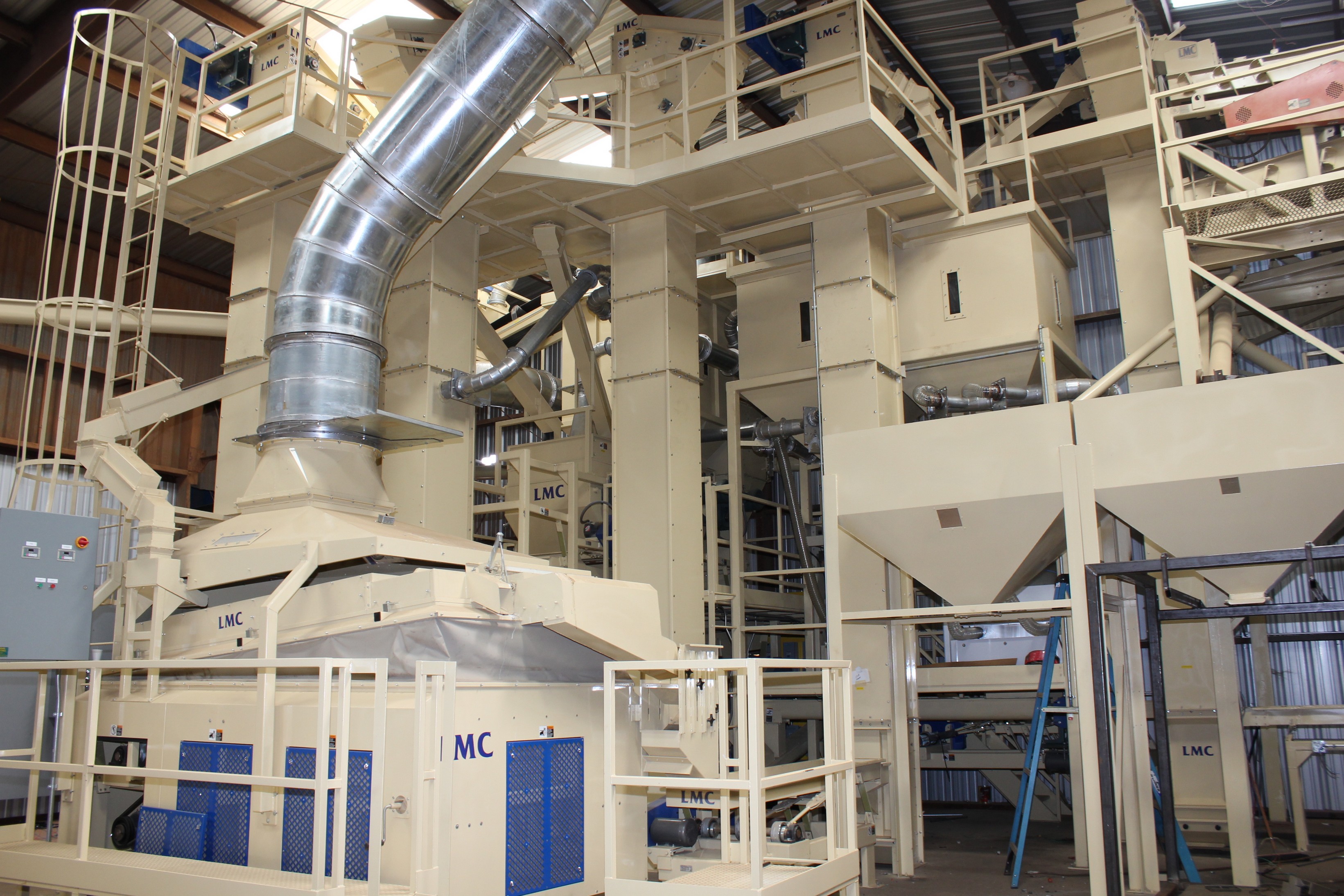
The new peanut sheller at the Georgia Seed Development Commission Foundation Seed Facility in Plains, Ga., has the capacity to shell 6 to 8 tons per hour.
The Georgia Peanut Tour visited the Georgia Seed Development Commission while in Plains, Ga. During the visit, Ralph Johnson, manager of the Foundation Seed Facility in Plains provided an overview of the process for maintaining seed purity at the facility. There are three classes of seed acres in Georgia including certified (89,000 acres), registered (23,000 acres) and foundation (900 acres). The varieties planted this year include GA-06G, GA-07W, Georgia Greener, Tifguard, GA-09B, GA-02C, GA-052529 (experimental line). The commission works to maintain variety purity but the big problem they face is maintaining the anticipated demand for each variety. The equipment in cleaned in between each step from drying to shelling in order to maintain varietal purity. The facility in Plains has recently replaced their 40 year old sheller which had a capacity of shelling 2 to 3 tons per hour. The new sheller has the capacity to shell 6 to 8 tons per hour. Prior to bagging, a seed treatment is applied to protect against seedling disease. The cost of 2.5 to 3 cents per pound is well worth it for the farmer. According to Bob Kemerait, University of Georgia Extension plant pathologist, a farmer receives more value out of that fungicide treatment to protect against diseases which also helps the farmers obtain a good stand after planting. “This is the first and most important investment for the farmer,” Kemerait says. After the seed treatment is applied then the final step of bagging begins and all seed is grouped by lot numbers.
